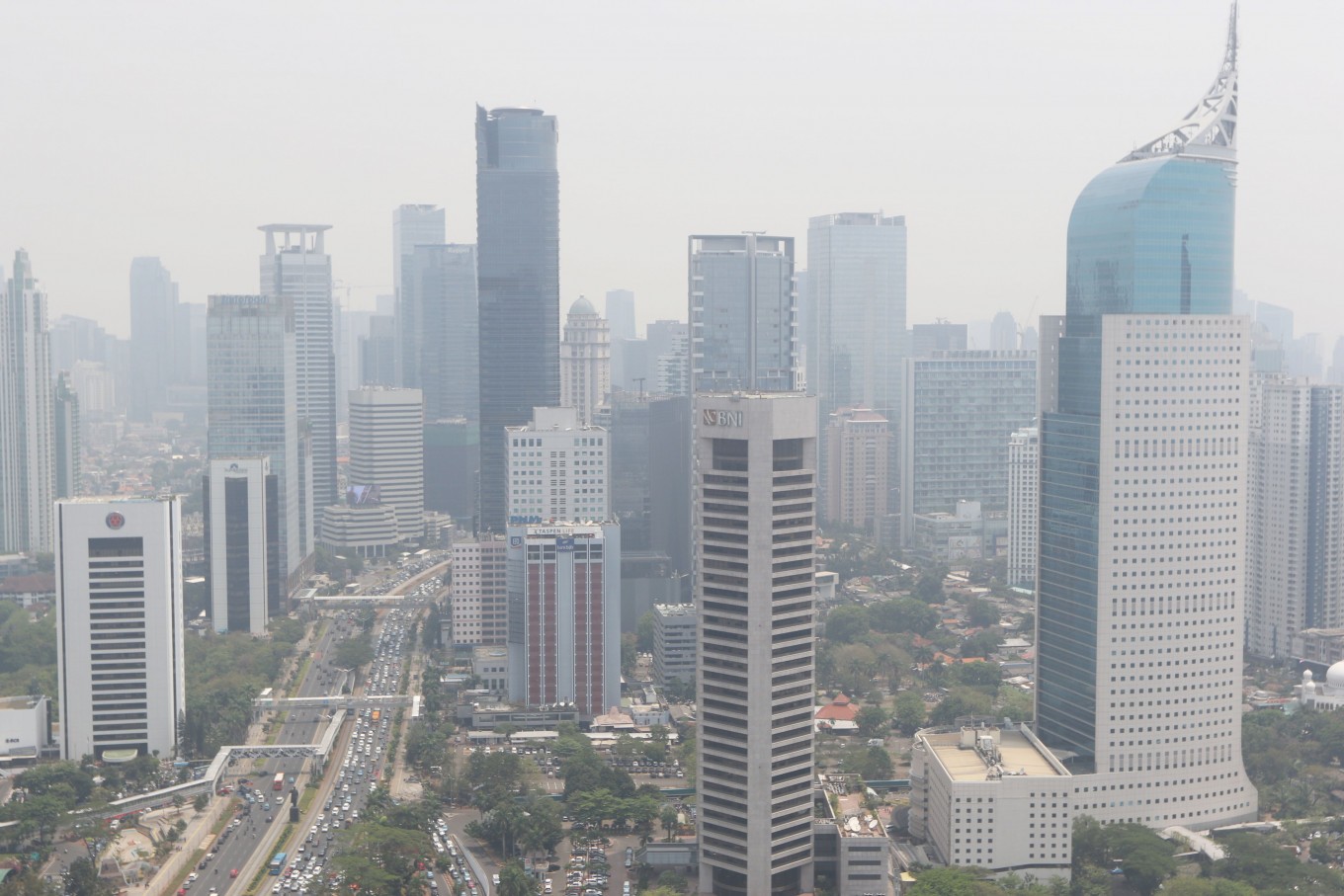Popular Reads
Top Results
Can't find what you're looking for?
View all search resultsPopular Reads
Top Results
Can't find what you're looking for?
View all search resultsJakarta office market resilient during new normal
Change text size
Gift Premium Articles
to Anyone
T
he office market in Jakarta has remained resilient due to the flexibility of landlords and tenants during the health crisis, despite the growing trend of working from home, property consulting firm Knight Frank has stated.
Jakarta’s Premium and Grade-A office occupancy rates remained stable at around 76 percent in late May. The same level was seen in the second half of 2019, according to the company’s data.
Knight Frank business development director Martin Wijaya told The Jakarta Post in an online interview on June 19 that both office property owners and tenants in Jakarta had been able to compromise in terms of payment, which contributed to the city’s stable office occupancy rate.
“The key is flexibility with both parties. That’s what makes us resilient in the office market sector,” he said.
While landlords are able to be flexible with the payment, tenants’ commitment to honor the contracts, amid possible fines for termination, have been some of the main factors that have maintained the office occupancy rate in Jakarta, the firm stated.
Companies all over the country have remote working arrangements for their employees to prevent the transmission of COVID-19, lowering the use of office space during the pandemic. The government’s large scale social restrictions (PSBB) in several regions have also forced offices and businesses to shut, although the government began gradually reopening the economy in June.
The monthly rental ask price in Jakarta has also been relatively stagnant, Knight Frank data show. For Premium office space, the ask price was Rp 439,000 (US$30.2) per square meter in late May, while in the second half of 2019, the price was Rp 441,000 per sq m.
For Grade-A office space, the monthly ask price in late May stood at Rp 352,000 per sq m. In the second half of 2019, it was Rp 354,000 per sq m.
“The office occupancy rate is relatively stagnant compared to the previous period with around 400,000 sq m of space available throughout the year,” Knight Frank senior researcher Syarifah Syaukat said during the interview.
According to the company’s records, office space demand is currently dominated by sectors that have not been hit hard by the COVID-19 pandemic, such as the financial sector, e-commerce, food and beverage and insurance.
Tenants are also reluctant to unilaterally end their rent, as the majority of rent contracts include a hefty penalty for early termination, which could see tenants lose their security deposits and require that they pay fees for the rest of their lease term.
While landlords typically do not approve of rent price cuts, they usually allow for rent payment deferment for cash-strapped tenants, according to the firm’s associate tenant director, Rina Martianti.
However, despite the relative resiliency, new tenants are starting to take shorter lease terms, down from five years to three years, to minimize risks. In addition, companies are postponing their decision to relocate, upgrade or expand.
Property consultant Jones Lang LaSalle (JLL) Indonesia head of research James Taylor said in May that Jakarta might experience the most significant impact from the pandemic on new leasing deals in the second quarter, as businesses continued to implement work-from-home arrangements.
“However, we expect tenant demand to return once the worst of the crisis has passed. In some ways, COVID-19 is accelerating changes to the workplace that were already coming,” he said in a statement on May 26.
Leasing activity in the Asia-Pacific dropped 9 percent in the first quarter of 2020 from the previous quarter in 2019, despite a 14 percent year-on-year increase, JLL data show.










